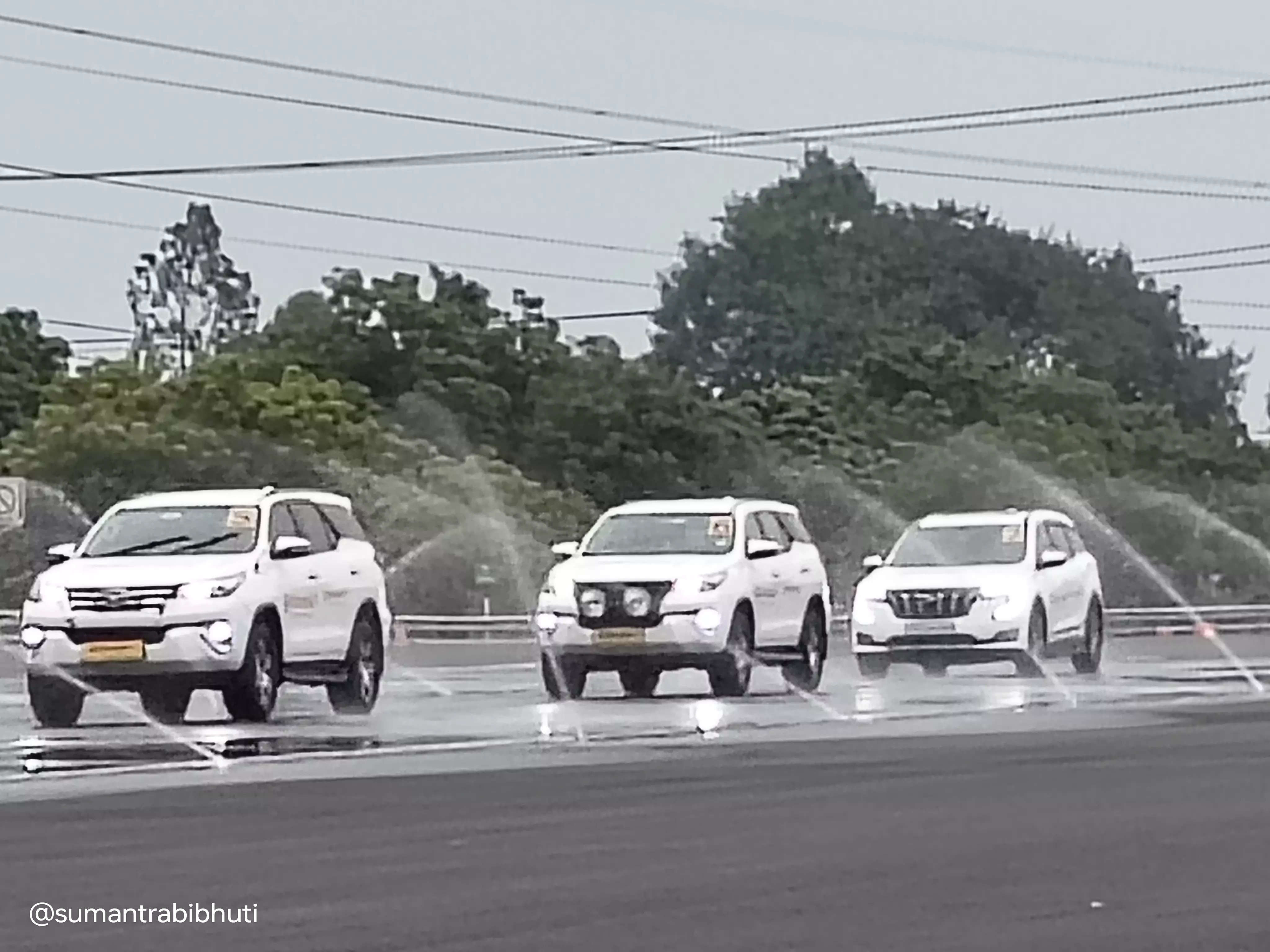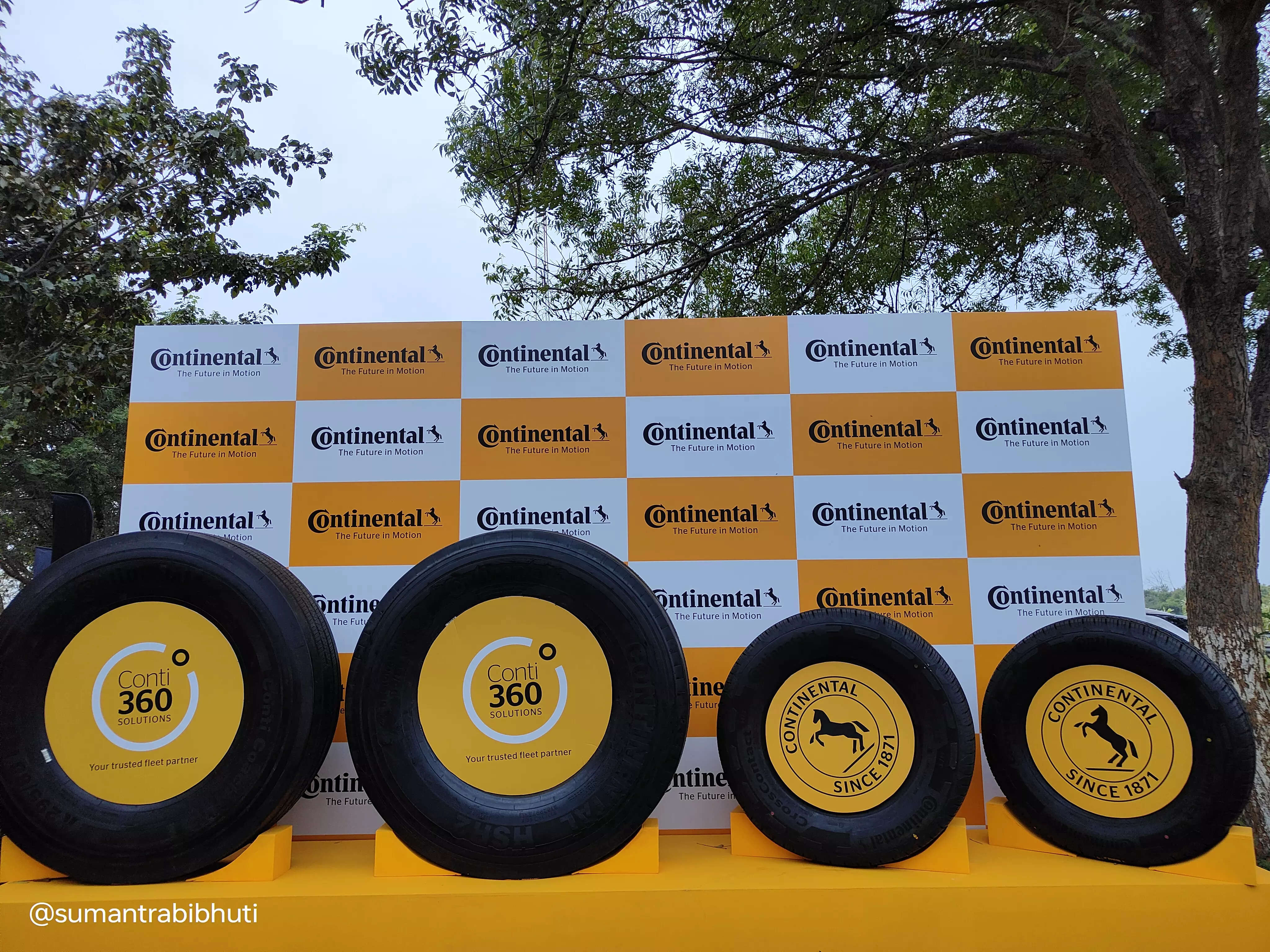
Continental is a major player in the European tyre market, but in the Indian market an insignificant one. With an aftermarket-only business strategy, Continental plans to play a technology-led game to enhance its presence in India. ”What we are eyeing for is more premium products, and bringing more technologies. We are not looking at ramping up our volume share significantly though we definitely want to grow our volumes,” Samir Gupta, MD, Continental Tires India, and Head of Central Region, BA Tires, APAC, said.Intelligent tyre
In 2023, Continental launched what it calls an ‘intelligent tyre’ for the Indian commercial vehicle sector. The tyre, equipped with a sensor, provides information on tyre’s air pressure, temperature, and kms run to the fleet owner through an app, and to the driver through an indicator. According to Gupta, it’s the first-of-its-kind in the Indian industry.
A similar offering for the passenger vehicle segment is currently being developed jointly by Continental’s tyre and automotive business divisions. In the CV tyre, the sensors are put on the inner lines of the tyres. Taking the same approach for passenger vehicle (PV) tyres may be difficult as PV tyres have thinner walls. “TPMS (Tyre Pressure Monitoring System) is something that we are still trying to develop whether it can be embedded into the tyre itself. Can we have features which are more connected to the driver through the TPMS. This is what we are working on,” says Gupta.
New tyre for on and off-road driving
While an ‘intelligent tyre’ for PVs is still in the works, what Continental sees a growing opportunity in is the Indian midsize car and SUV market. It has recently launched a new range called CrossContact H/T designed for ‘the market’s needs of driving on and off-road (80% on and 20% off-road)’. These tyres are designed for 15 and 18-inch rim sizes.
With this introduction, Continental looks to increase its single-digit market share which the company wouldn’t want to disclose. According to Gupta, the Indian aftermarket size is around 29 million units for PV tyres, and 17 million for M&HCV tyres. The estimated annual growth for the PV aftermarket tyre segment is 3-4%, and 5-7% for the CV tyre segment.
End of bias tyre production
Continental Tires started its India journey in 1975 with a technology licence agreement with Modi Rubber. In 2011, it acquired the Indian tyre company reportedly for INR 117 crore. The journey, which started with bias tyres for CVs, saw the production of the last such tyre in 2023. Currently, the Modipuram plant, in Uttar Pradesh, produces only radials, for CVs and PVs.
Though tube-type tyres have virtually exited the PV segment, in the CV segment, Gupta says, their share is around 95%. Taking cognisance of this fact, Continental claims that it offers tyre technology that allows re-treading up to three times, against the usual once in the industry. “To give that confidence to our customers on our product, we give a casing warranty even after the re-treading, though we are not the re-readers,” says Gupta. According to him, with multiple re-treading, the tyres can run for up to 300,000 km.

New offering for CVs
To play the technology card further, Continental plans to launch a new range of CV tyres, “between Q1 and Q2” of this calendar year, which claims to aid in achieving 10-20% better fuel efficiency than Continental’s current range. The rubber wear rate will also be lower, according to the company.
Next gen tyre for PVs,
On the PV side, along with the introduction of the CrossContact range, Continental is introducing the next generation ‘PremiumContact 6 tyres, an upgrade from its ‘SportContact 5’ tyre range.
Even after the introduction of the latest CrossContact H/T tyre range, there are some gaps still which Continental plans to bridge. “When I see the market, the overloading trend is coming down because of various regulations which are becoming more and more implemented now. Good for us. And, on the passenger vehicle side we still do see some gaps in terms of sizes which we are adding now,” Gupta said.
What is also making global tyre manufacturers step up production in India is the Government imposed restriction on tyre imports, announced in 2020. Till then tyre sizes 19-inch and above were largely imported. “2021 or 2022 was the time when we got these 19- and 20-inch sizes into India, with a special marketing line which was the SportContact 5,” Gupta said.
With the Indian economy in a healthy state, and a revised upward growth revision, Continental looks at tapping the India opportunity further. Its automotive business division, with a global technical centre, already has a major presence. The tyre business division, which is taking “baby steps” after setting up the fully owned entity in 2011, has an R&D team which coordinates with technical colleagues in Hanover and Malaysia to develop India-specific products.
“All the products are tailor-made for India. We are not selling any product which we sell in any other part of the world. The tyre robustness is the highest in these products. We don’t sell this kind of robustness in Malaysia, or in Europe, or in the Americas, and not even in China,” says Gupta.
What Gupta would prefer not to talk about at this stage is his company’s production capacity. However, according to him last year the company sold nearly whatever it could produce, and for this year he would say, “I can only tell you that by the end of this year we will increase our current capacity by double digit percentage of the current capacity.”
The numbers are not huge, but the approach being taken by Continental for its tyre business in India is to take “baby steps, not putting any pressure on ourselves so that we are bound to sell everything we have, but we are bringing technologies to the Indian market”.
As for India’s role in the overall scheme of things for Continental Tires, he said, “I believe India is at a stage where no one can ignore India, including Continental.”
















